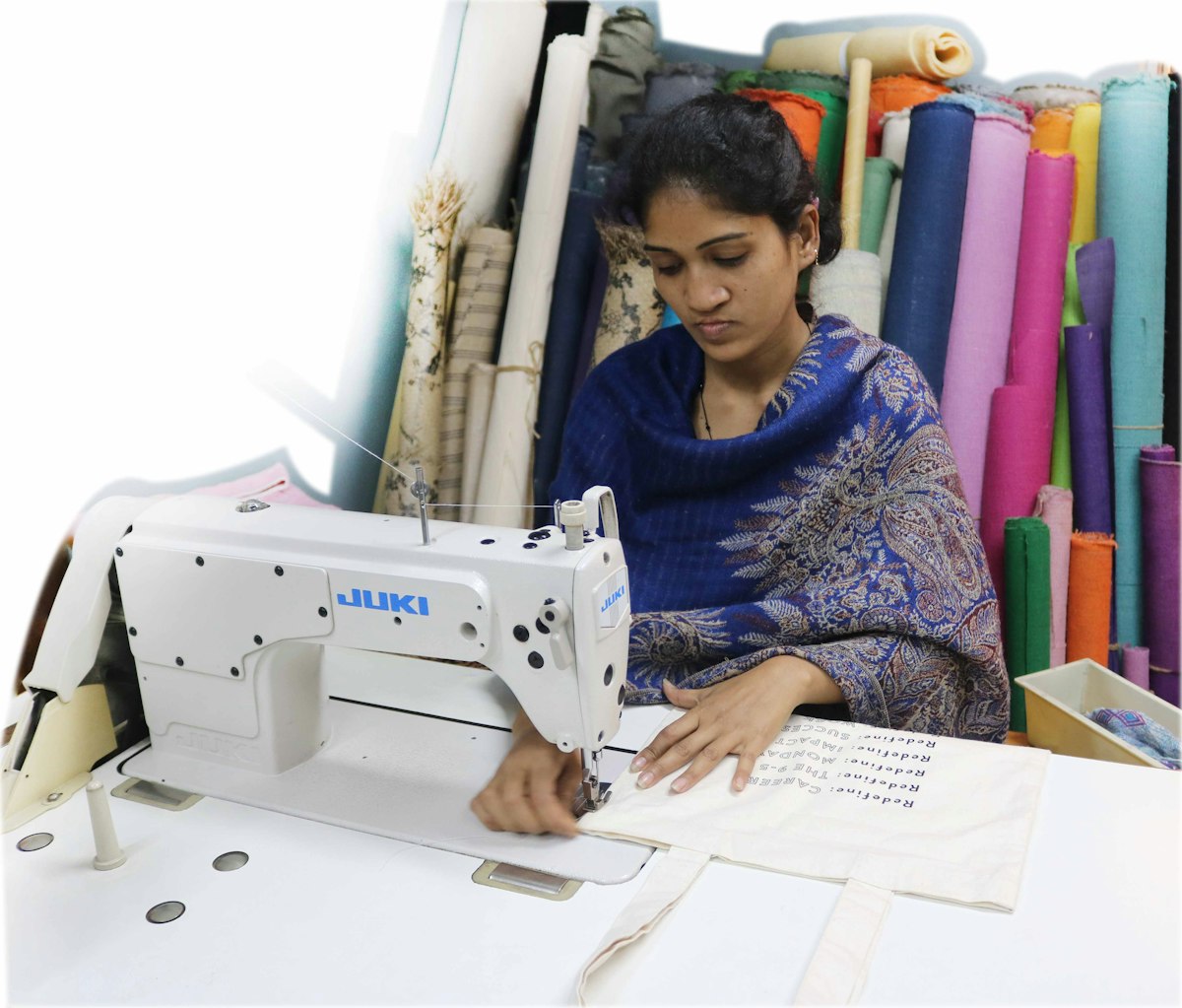We hear the phrase “ethically made by artisans” and “fair, living wage” a lot in the social impact business space – but what does the impact of these practices truly look like in the daily lives of the women crafting these products? Today on the blog, we’re hearing from Global Goods Partners, a not-for-profit social enterprise committed to providing sustainable jobs for women. We’re big fans of the work they’re doing, and even got to partner with GGP by having them make our NY Yellow Conference tote bags (as spotted in the image above)! Check out our interview with them below, and hear how life has shifted for the artisans they work with, and the real impact we have as consumers when we purchase from brands like GGP.
What does it actually mean to earn a fair, living wage?
As a general term, “a fair, living wage” means that a worker’s pay enables her or him to cover basic costs that allow for a dignified and healthy life. As a fair trade organization, we at GGP work only with artisan groups that share our commitment to provide a fair, living wage to the female artisans that produce GGP products. We ask each of our partners to quantify the average cost of living in their community, including housing, food, medical visits, and primary school costs. These data points allow us to verify that artisan wages meet fair wage standards. It’s important to note that a fair living wage is not the same as minimum wage, as this can be shockingly low, or non-existent, in many countries.
In the aftermath of the devastating 2013 collapse of Rana Plaza in Bangladesh, the fashion industry, in particular, has stepped up to insist on safer and healthier conditions for workers that produce their products. Fashion Revolution Week was born of this disaster to remember those who lost their lives, and to advocate for change for workers and working conditions in the fashion industry. Yet, in many places where protection for workers remains weak or nonexistent, wages are too often used as the variable to lower production costs. Consumer expectations play a role in expanding fair, living wages to more and more workers. At GGP, we take every opportunity to communicate the benefit of equitable wages and the inherent value they add to the products we sell.
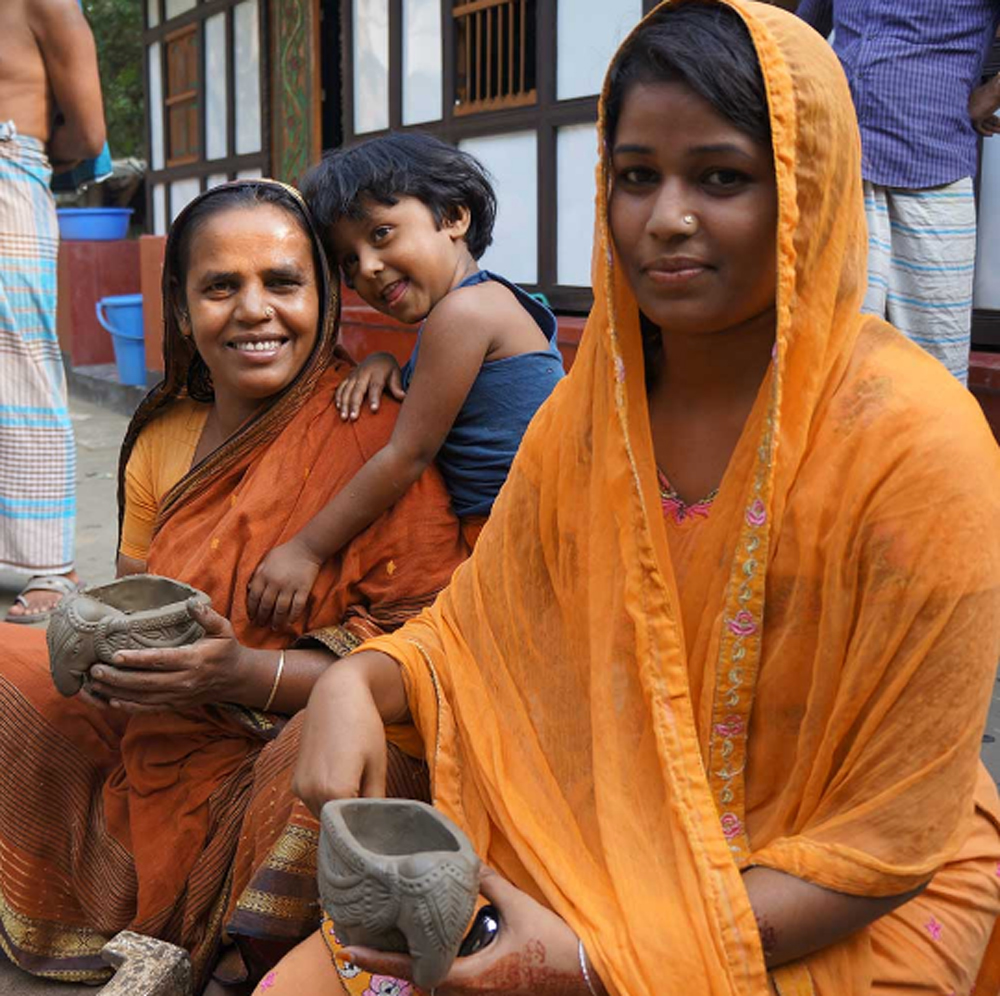
What were the realities faced by the women you met in Bangladesh who were previously not earning a living wage?
By some measurements, Bangladesh has made progress in reducing extreme poverty in the last several decades, yet it’s estimated that 74% of those living below the poverty line are women. As a highly patriarchal society, most women in Bangladesh face constraints that permeate almost every aspect of their lives. Bangladesh has the world’s fourth highest rate of child marriages, depriving girls of their education and the prospect of gainful employment. While women traditionally manage small family tracts of farmland, their work is unpaid. Additionally, rates of sexual violence and maternal death remain dangerously high. These factors, combined with a lack of secure housing, health care, and income generating work, create a life of deprivation and dependence for far too many Bangladeshi women.
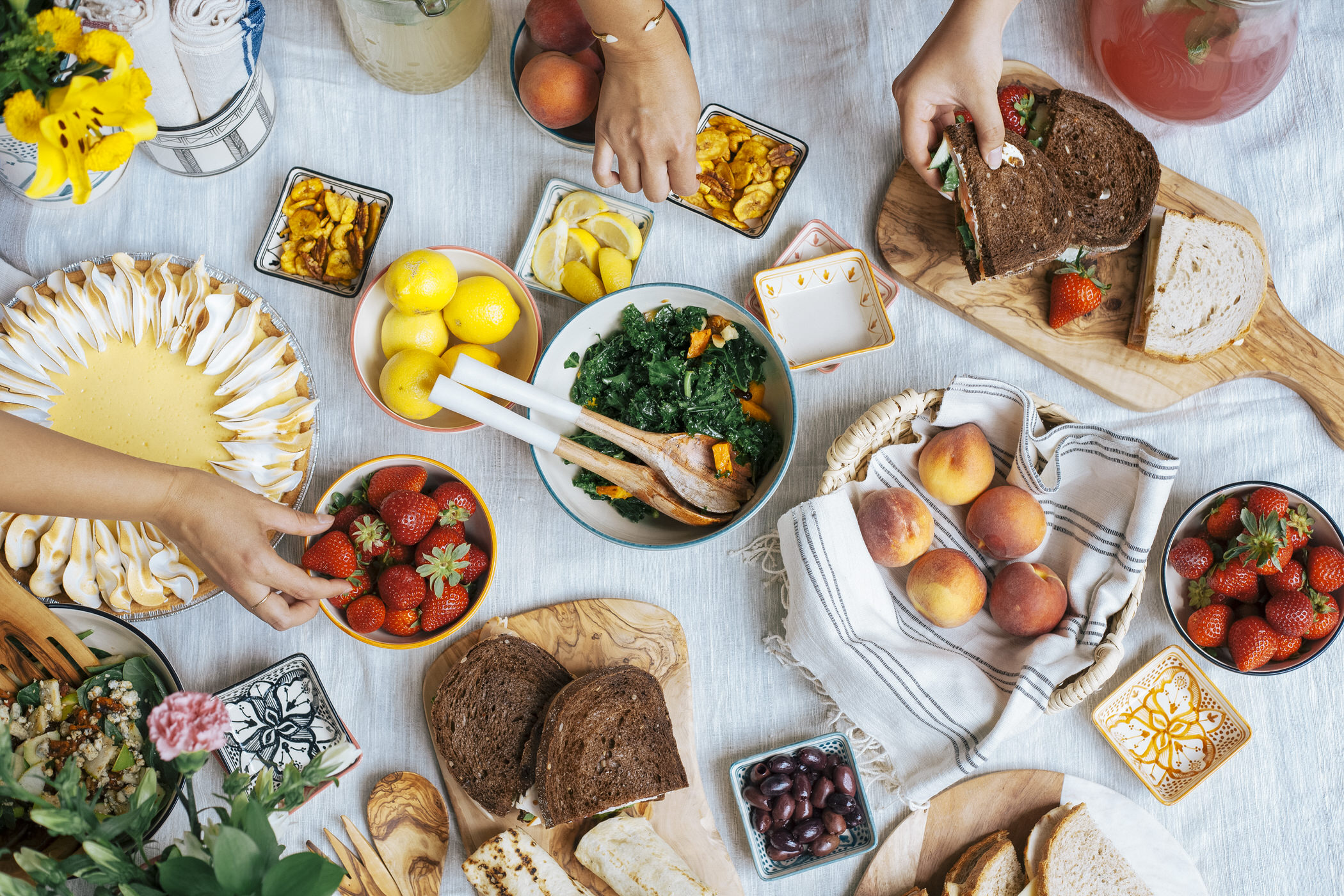
Many organizations speak to the fact that providing work opportunities is often the most sustainable solution for serving an undeveloped area. Can you share about why that is the case?
In Bangladesh, as in other countries in South Asia, culture, religion, family obligations, and economic realities serve as barriers to women’s economic inclusion. Excluding women from the labor force not only violates their basic human rights, it also perpetuates global poverty and suppresses economic growth.
However, more and more Bangladeshi women are taking steps to secure their families’ financial future by joining their country’s artisan craft sector — one of just a few income-producing pursuits that are considered socially acceptable.
Bangladesh has a rich craft history built around the country’s natural resources, such as bamboo, wood, jute, and other textiles, with women passing down handwork skills from one generation to the next. But in today’s world of fast fashion, expert craft skills alone do not necessarily translate into products that appeal to a wide audience. Nor are female craft workers necessarily fairly compensated for the value their skills represent. Women who start their own small enterprises often have to rely on male family members or middlemen to gain access to local and international markets, reducing their share of profit.
At Global Goods Partners, we work with artisan women in Bangladesh, offering them access to a customer base, along with design and technical assistance so they can compete successfully in the international marketplace. We’re working towards our overriding goal of addressing poverty alleviation by creating a foundation that will enable increasing numbers of women around the world to join the global economy and reliably earn fair living wages. By partnering with women artisans in over 20 countries, from small community groups to large cooperatives, we’ve been able to impact the lives of over 20,000 women worldwide. We’re proud that our partnership with Yellow Co. to produce the New York Conference tote bags has been able to provide meaningful, dignified work for Bangladeshi women.

What kinds of impact have you seen in the lives of the artisan women you work with from having this kind of work opportunity?
Through our Bangladeshi partner, CORR, we’ve been able to use funds from our sales to help provide artisans access to credit and business training; women’s rights, health and nutrition workshops; disaster relief, and education for their children, who would otherwise struggle to attend school. They’ve also installed deep wells for fresh drinking water and sanitary toilets in homes, and annually distribute tree saplings to its communities. We’ve also seen mothers now have the freedom to work from home, look after their children, and tend to their domestic responsibilities, which are rarely shared by men in their families.
Are there any specific stories of impact you can share?
The following story was sent to us from our partner in Bangladesh, CORR, the artisan group that produced the conference bags.
Married at 12, Haricha Begum and her family struggled to get by on the income her husband earned as a day laborer, tilling and sowing land. Her mother-in-law, who was producing jute crafts from her home to sell at local markets, taught Haricha different weaving techniques so she too could earn money for her family. With these skills, Haricha became involved with the Bangladesh-based artisan cooperative, CORR, one of GGP’s partners, and has been producing handcrafts from her home for CORR for more than two decades. She is proud of the fact that this cooperative gives rural women the strength to work together and provide for their families.
As a group, they have become empowered to stand up to fight against the social injustice and unfairness they face because of their gender.
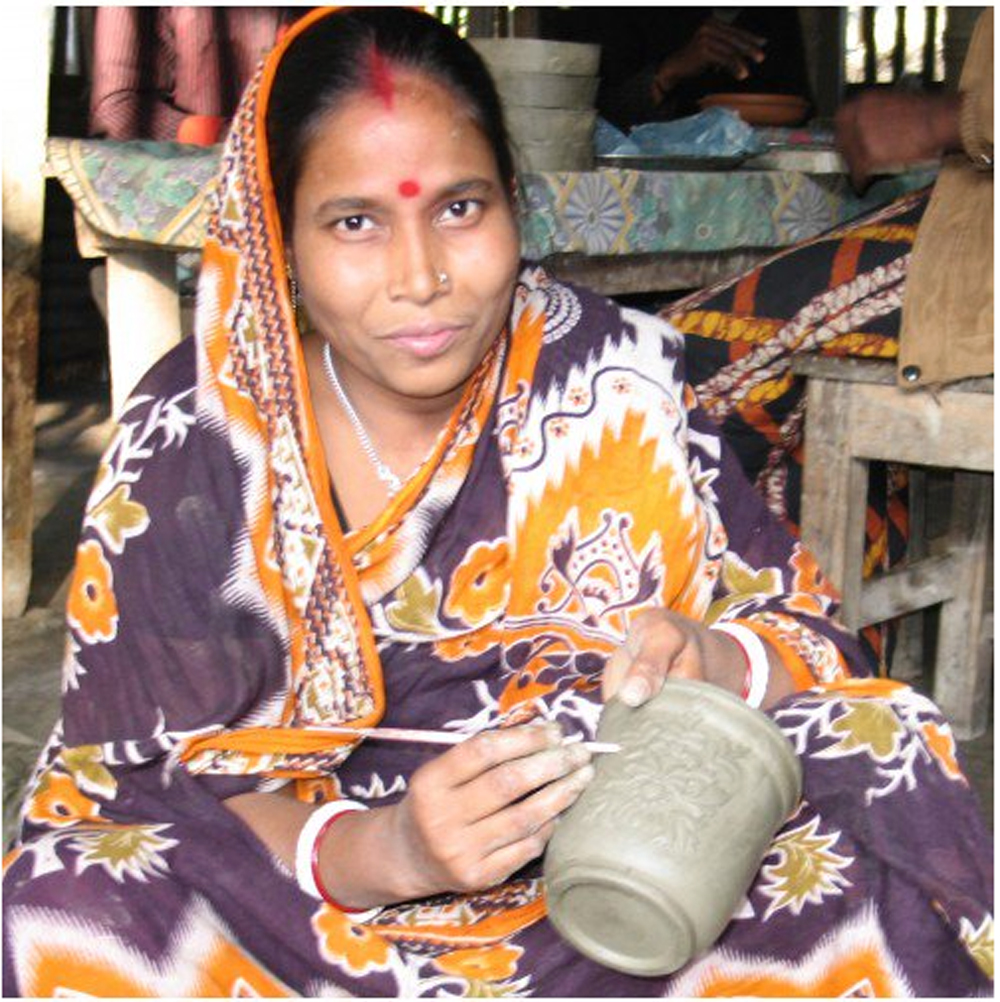
Though the women come from different cultural and religious backgrounds, they have joined together to campaign for equal rights and other common interests.
In Haricha’s producer group, all women are involved in the discussion of the quality of orders and development of products. They distribute their work among the members and ensure all artisans are given fair amounts of work. Through their involvement, most members are learning how to write and sign their names for the first time. Above all, women are inspired to send their children to school. The education of a child has become a movement at the producers’ level. Haricha couldn’t afford to send her eldest son to school beyond the eighth grade, but she is committed to have her younger two children complete their secondary education. One of Haricha’s co-workers expressed a sentiment that many CORR artisans share:
“I wish all women in Bangladesh to follow my example, to move forward and start working so that they live worthy lives. Before women did not work and therefore had little value within the family. Their parents did not give them importance. Now, because we bring in money, our parents listen to us, we take part in decisions, our autonomy is strengthened.” – Sonia Akter, Artisan at CORR
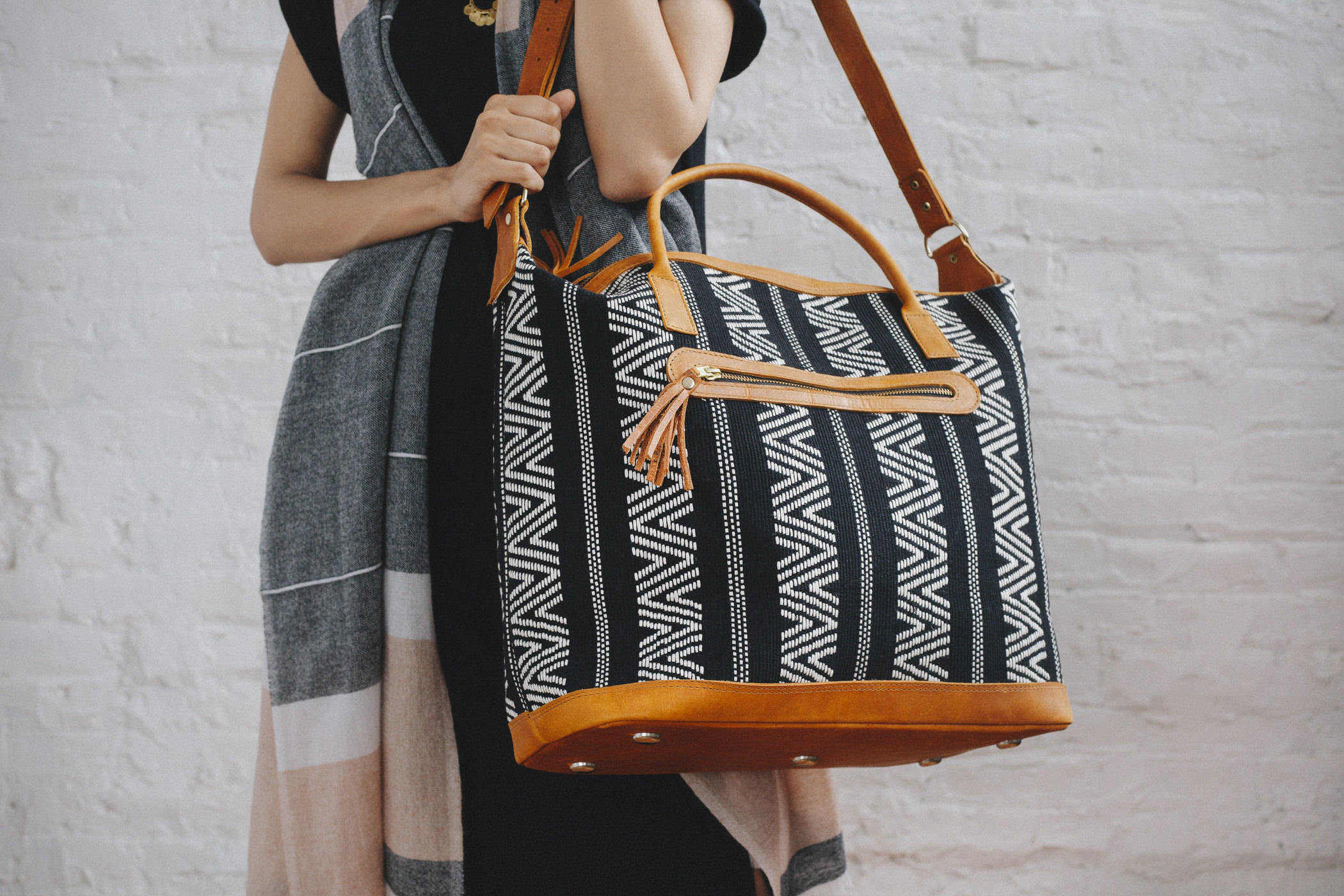
If consumers increasingly made it a priority to support brands like yours, what is your greatest hope for the future impact that could be made in these communities?
When we launched GGP more than 13 years ago, our goal was to work collaboratively with artisan communities to help them establish enterprises that would create income-generating jobs for women well into the future. The term “win-win” may be over-used, but it accurately describes the impact that a well-managed business with well-trained, empowered artisans can have on the health of a community. Happily, we have seen the positive effect that our approach can deliver. Our greatest hope is that the economic activity that GGP and brands like ours generate in local communities will increasingly lead to secure, reliable income and greater economic opportunity for women, who in turn, will invest in their families’ futures.
Joining us at our Yellow New York Conference today? You’ll head home with our conference tote created in partnership with GGP by their female artisans! We’re intentional in making sure that our do-goodie bags are not only filled with conscious brands you’ll love, but that the bag itself is making just as much of an impact too.
Photos courtesy of Global Goods Partners
